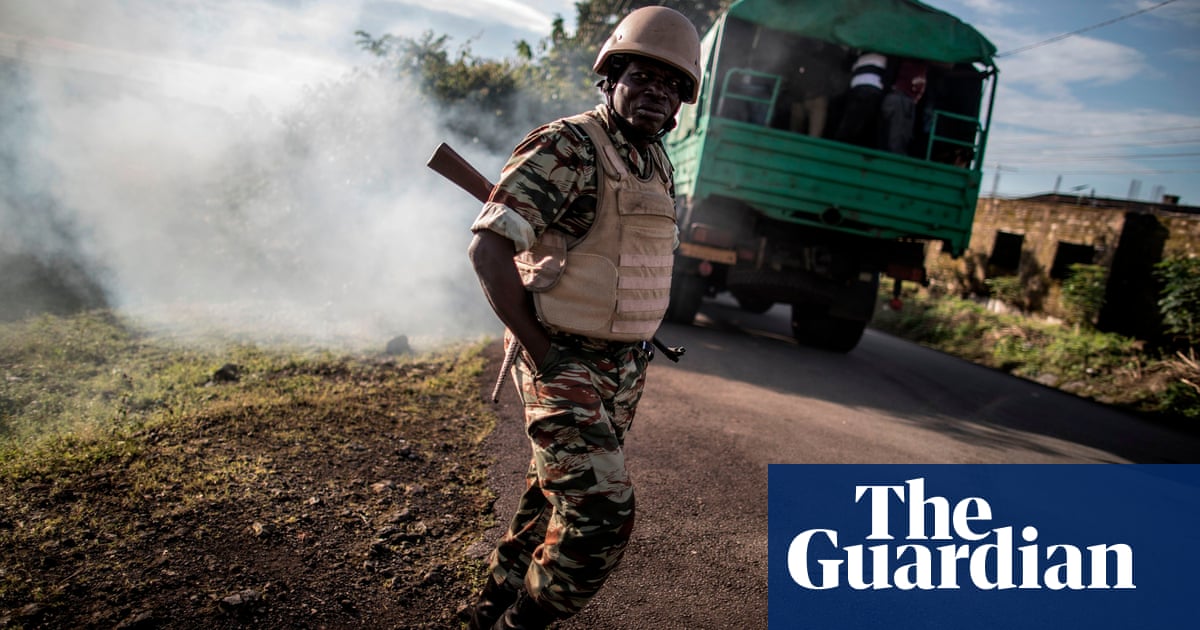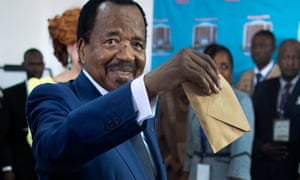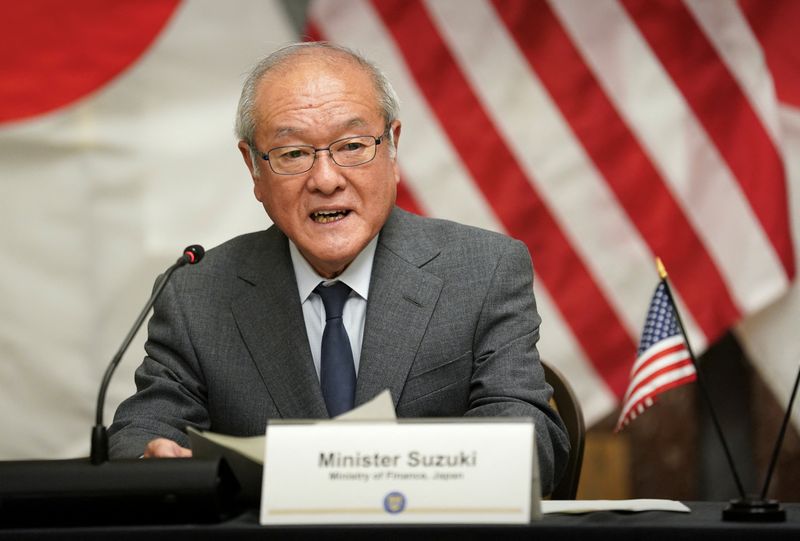85-year-old incumbent, Paul Biya, runs for seventh term as president amid fighting between rebels and military

Voters in English-speaking regions of Cameroon went to the polls on Sunday amid gunfire and confrontations between the countrys military and separatists.
The countrys 85-year-old president, Paul Biya, is running for a seventh term in the central African country where anglophone rebels have been fighting for secession from the francophone majority, prompting a fierce crackdown by government forces.
Many anglophone Cameroonians have already fled their homes, but most of those remaining in the regions largest towns, Bamenda and Buea, were too scared to go out to cast their votes. Gun battles went on for hours in parts of the two towns.
We have been on the floor since the morning due to the gunshots. I felt like the bullets were passing all over my head. Now I know I cannot vote again, said Allen Fru, an electrician in Bamenda.
The separatists declared the election banned in the regions, which last year symbolically declared the independent republic of Ambazonia.
More than 20 Amba boys, as the separatists are called locally, reportedly paraded through the streets of Bamenda to intimidate voters. Two suspected separatist fighters were shot dead by the military after attacks on polling centres early on Sunday.
The national elections body, ELECAM, had earlier selected more than 2,300 polling stations in the north-west for the presidential election, but security threats reduced the number to 74.
About 528,000 people were registered to vote in the north-west on Sunday, although most polling stations inspected received few or no voters. Some voters, who had earlier showed interest in the elections, said that following the gunshots, they wouldnt risk it. Nor did officials dare to venture out to man polling stations.

I didnt go to the polling station because I weighed the options and I saw that I wasnt quite secured, said Sylvia Bih, an official in Bamenda. My family too, didnt quite approve that I take on such a delicate task, following the gunshots this morning and other realities on the ground. I live quite far from the polling station. The distance is long and anything can happen to me along the way. So I stayed off.
Government officials in Bamenda cast their votes at a polling station in the administrative headquarters, a highly secured area. Prime minister Philmon Yang voted there despite being initially registered to vote in his home village.
ELECAM said those whose villages were inaccessible and insecure could vote in the anglophone regional headquarters, but failed to provide the same opportunities to the internally displaced people in French-speaking towns.
Following continuous attacks from separatists, the local administrator declared a curfew from 6am to 6pm.
The opposition, whose main candidate is Joshua Osih of the Social Democratic Front, is largely divided and weak.
Only 6.5 million of the countrys 24 million people were registered to vote, and between this, the anglophone crisis and Biyas record he won in 2011 with 78% of the vote in a flawed election, according to the US state department the incumbent is almost certain to win.
The likelihood of his victory is beyond reasonable doubt. I am confident that the game is already done, Issa Tchiroma Bakary, a government spokesman said.
Read more: http://www.theguardian.com/us




